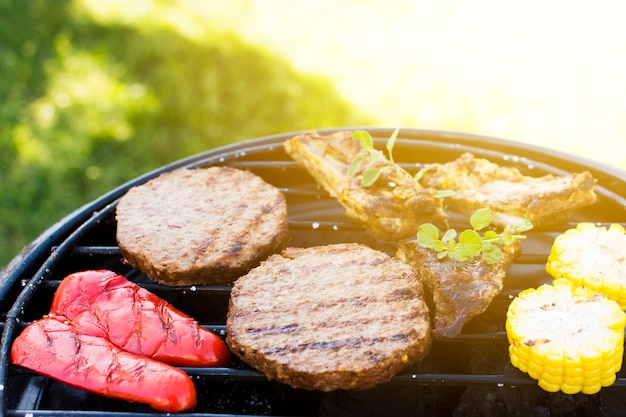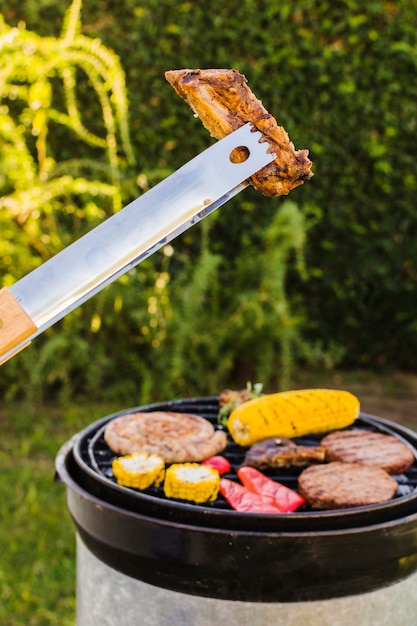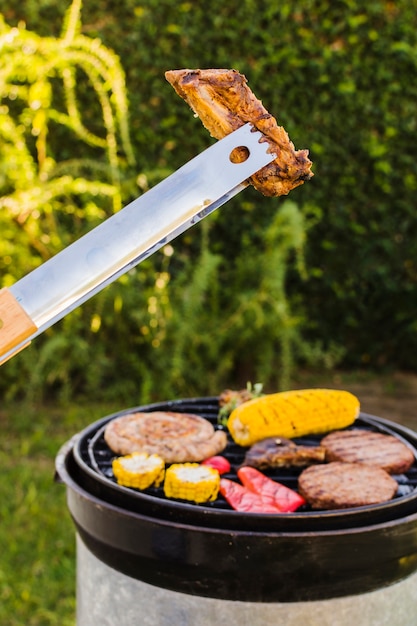Are Beef Burgers Halal?
Halal is an Arabic term that means “permissible” or “lawful.” It refers to any action or object that is permissible according to Islamic law. In the context of food, halal refers to meat obtained from animals slaughtered in accordance with specific Islamic dietary laws. With the increasing diversity of dietary requirements in the UK, many consumers are questioning whether beef burgers are halal. This article aims to provide a comprehensive answer to this question.
Understanding Halal Meat
In Islam, the process of slaughtering an animal for meat consumption is known as “dhabiha” or “zabiha.” According to Islamic law, the animal must be alive at the time of slaughter, and its throat must be swiftly and humanely cut by a Muslim who invokes the name of Allah (God). This process is believed to drain the blood from the animal’s body, which is an essential requirement in halal butchery.
Allah says in the Quran, “Forbidden to you is carrion, and blood, and flesh of swine, and that on which is invoked a name other than Allah’s, and that which has been killed by strangling, or by a violent blow, or by a headlong fall, or by being gored to death, and that which has been (partly) eaten by a wild animal, unless you are able to slaughter it (before its death).” (Quran 5:3)
Based on these guidelines, beef burgers can be considered halal if the following conditions are met:
- The animal used to produce the beef was slaughtered according to Islamic dietary laws.
- The process involved in producing the beef burger, including any additives or processing, does not involve any haram (forbidden) substances.
Verifying Halal Certification
In the UK, there is a growing demand for halal food, including beef burgers. To address this demand, many food companies and restaurants have obtained halal certification to guarantee that their products meet Islamic dietary requirements.
Halal certification is typically provided by independent organizations or certification bodies. These organizations ensure that the entire supply chain, including the sourcing, slaughter, processing, and packaging of the meat, adheres to strict halal standards. The certification process involves periodic inspections, audits, and traceability checks to maintain the integrity of the halal status.
Consumers can look for halal certification labels on beef burger packaging or consult online directories and databases to find certified halal products. It is essential to note that not all beef burgers are halal, and it is the responsibility of the consumer to verify the halal status before making a purchase.
The Importance of Transparency
Transparency in food labeling is crucial to empower consumers to make informed choices regarding their dietary preferences. Many consumers seek halal products due to religious, cultural, or personal reasons. Clear and accurate labeling allows individuals to identify halal options and make appropriate decisions without any ambiguity.
“Transparency in labeling not only benefits Muslim consumers but also enables everyone to understand the origin and nature of the food they are consuming. It promotes inclusivity and respect for different dietary requirements and ensures compliance with legal and ethical obligations.”
– A spokesperson from the Halal Food Authority
The lack of clear labeling can lead to confusion and unintentional consumption of non-halal products, which may be against an individual’s religious beliefs. Therefore, it is essential for food manufacturers and retailers to provide transparent information about the halal status of their food products.
Halal Beef Burgers in the Market
The market for halal beef burgers in the UK has expanded significantly in recent years. Several major supermarkets, restaurants, and fast-food chains now offer dedicated ranges of halal-certified products to cater to the growing demand from Muslim consumers and those looking for halal options.
These halal beef burgers often come with halal certification labels or are advertised as specifically halal. This allows consumers to easily identify and select products that meet their dietary requirements. The availability of halal beef burgers in mainstream outlets demonstrates the inclusivity and diversity of food choices in the UK.
Conclusion
In conclusion, whether beef burgers are halal depends on various factors, including the method of slaughter, the processing involved, and the presence of any haram substances. To ensure the halal status of beef burgers, consumers should look for halal certification labels on the packaging or consult reliable sources of information.
The market for halal beef burgers in the UK has expanded significantly, reflecting the increasing demand for diverse dietary options. Transparency in labeling and certification plays a vital role in enabling individuals to make informed choices and respect different dietary requirements.
As the UK continues to become more multicultural, the availability of halal food options, including beef burgers, is an important aspect of catering to the needs and preferences of diverse communities.



